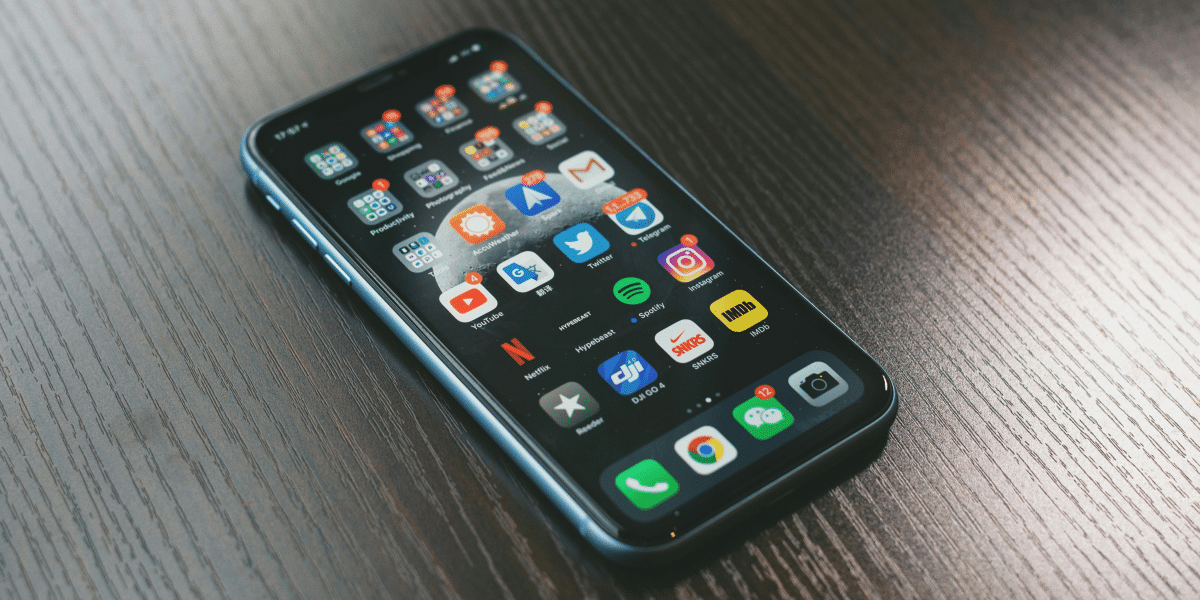By: Cmolds
iOS app development is one of the most lucrative development ventures – and in the Middle East, where the App Store has reported the highest subscription and in-app purchases revenue, an iOS app is more than a revenue engine. If you’re a potential iOS app founder or investor planning to hire a mobile app development company in Dubai to kick off your venture, here are eight frequently asked questions to help you take your first step.
Which programming language should we use to build a business-level iOS app?
Swift is the primary programming language we use for iOS app development. Apple’s modern, fast and safe programming language is designed specifically for iOS, macOS, watchOS and TVOS development. Swift offers a clean syntax and powerful features to enhance application performance.
In addition to Swift, Objective-C is another programming language we traditionally use for iOS development. However, Swift has become the preferred choice due to its advanced features like interoperability with Objective-C and continuous support and updates from Apple.
What should we add to a custom technology stack for building an iOS app?
In the technology stack for iOS app development, mobile app development teams typically include:
- Programming Language: Swift or Objective-C
- Integrated Development Environment (IDE): Xcode (Apple’s official IDE)
- Frameworks and Libraries: UIKit (for building user interfaces), CoreData (for data management), Alamofire (for networking), XCTest (for unit testing), among others
- Version Control: Git (for code management and collaboration)
- Deployment and Distribution: App Store Connect (for app submission and management)
However, mobile app development companies in Dubai often have enterprise-wide technology stacks that they use for proprietary and client-side iOS development projects. Some may also include React Native and Flutter.
How do we build an iOS app for iPad and iPhone audiences?
iOS app developers can create a universal iOS app that functions similarly on both iPad and iPhone by implementing an adaptive user interface design. This means that developers and designers work together on Auto Layout and Size Classes within Xcode, then create responsive layouts that adapt to different screen sizes and orientations. The key here, again, is designing flexible and scalable user interfaces for consistent user experiences across different iOS devices.
How do developers integrate an iOS Application with Apple Watch?
To integrate an iOS application with Apple Watch, developers use a framework called WatchKit. Apple provides it for building watchOS apps. WatchKit allows developers to:
- Create user interfaces
- Handle interactions
- Share data between the iOS app and the Apple Watch app
Developers can expand the scope and functionality of the Apple Watch app by further developing features such as complications, notifications, and health tracking.
How much does it cost to build an iOS application in Dubai?
The cost of building an iOS application in Dubai starts at AED 7500 and can go up to AED 100,000+ for advanced applications that integrate AI, VR, and IoT.
Intermediate iOS applications cost between AED 25,000 to 55000, while multi-featured applications start from AED 50,000.
You can optimize costs by building an MVP and controlling the app scope, keeping the interface design minimal, hiring a full-cycle mobile app development company in Dubai and subscribing to an economic maintenance service if your app doesn’t need ongoing development.
How long does building iOS applications from basic to advanced scope take?
Several features and design complexity impact the time and costs of development.
Essential iOS apps typically take 1-3 months to develop, including design, development, testing and deployment. Intermediate iOS apps can take 3-6 months to develop more advanced features, integrations and custom functionalities. Advanced iOS apps typically take 6+ months to develop. They involve complex features, extensive integrations (e.g., with backend systems) and rigorous testing and optimization.
Which monetization strategies can I follow for my iOS apps?
There are seven most popular monetization models that most iOS applications and target users support.
-
Paid App
You can charge users a one-time fee to download your app from the App Store. This model works well for premium apps with unique features or exclusive content.
-
In-App Purchases (IAP)
You can sell virtual goods, premium content and additional features within your app that users can purchase. This can include subscriptions, consumables, non-consumables and auto-renewable subscriptions. The app download here should primarily be free, and in-app purchases should only enhance the experience.
-
Subscription Model
If your app is for a niche audience, you can offer recurring subscriptions for access to its premium features or content. To attract users, consider offering free trials or discounted introductory pricing.
-
Freemium Model
A model between free and premium apps, you can offer a free version of your app with limited features or advertisements and allow users to upgrade to a premium version for an ad-free experience or access exclusive content.
-
Advertising
Integrate third-party ad networks (such as AdMob, Facebook Audience Network, or Apple’s own iAd) to display advertisements within your app. You can earn revenue based on impressions, clicks, or conversions.
-
Affiliate Marketing
Partner with other businesses or platforms and promote their products or services within your app, leveraging our expert web development services in Dubai. Earn commissions for driving sales or referrals while providing valuable offerings to your users.
-
Sponsorships and Partnerships
Collaborate with brands or sponsors to integrate sponsored content or promotions within your app in exchange for monetary compensation.
While you can choose one of these monetization models, an ideal method is to create a monetization mix utilizing these strategies to suit diverse target audiences.
What community guidelines should we follow when building and launching an iOS app in-house?
Your team needs to follow Apple’s App Store Review Guidelines when building and launching an iOS app, whether through in-house arrangements, outsourcing, or staff augmentation.
These guidelines outline the standards and requirements all iOS apps must follow and accept to keep functioning on the App Store. For reference, here are key community guidelines:
-
App Store Review Guidelines
Familiarize yourself with Apple’s comprehensive guidelines covering app functionality, design, content, privacy and security.
-
UI/UX Design Principles
Ensure your app provides an intuitive user experience and follows Apple’s Human Interface Guidelines (HIG) and iOS design best practices.
-
Data Privacy and Security
Implement strong privacy measures to protect user data and adhere to Apple’s strict privacy guidelines, including obtaining user consent for data collection and usage.
-
Legal Compliance
Make sure your app complies with applicable laws and regulations, which may include but are not limited to copyright, trademark and intellectual property rights.
-
Age-appropriate Content
Avoid inappropriate or offensive content that is based on or shows violence, discrimination, illegal activities and misleading information.
-
Functionality and Performance
Ensure your app functions as expected, performs well across different devices and iOS versions and does not contain bugs or crashes.
-
Monetization and In-App Purchases
Follow guidelines for in-app purchases, subscriptions and monetization methods to provide a transparent and fair user experience.
Conclusion
So, this comprehensive list of 8 FAQs about iOS app development concludes here. While these answers only scratch the surface, they’ll give you the much-needed mental homework so you can proceed and kick off with your team, whether in-house or outsourced.
Published By: Aize Perez

















